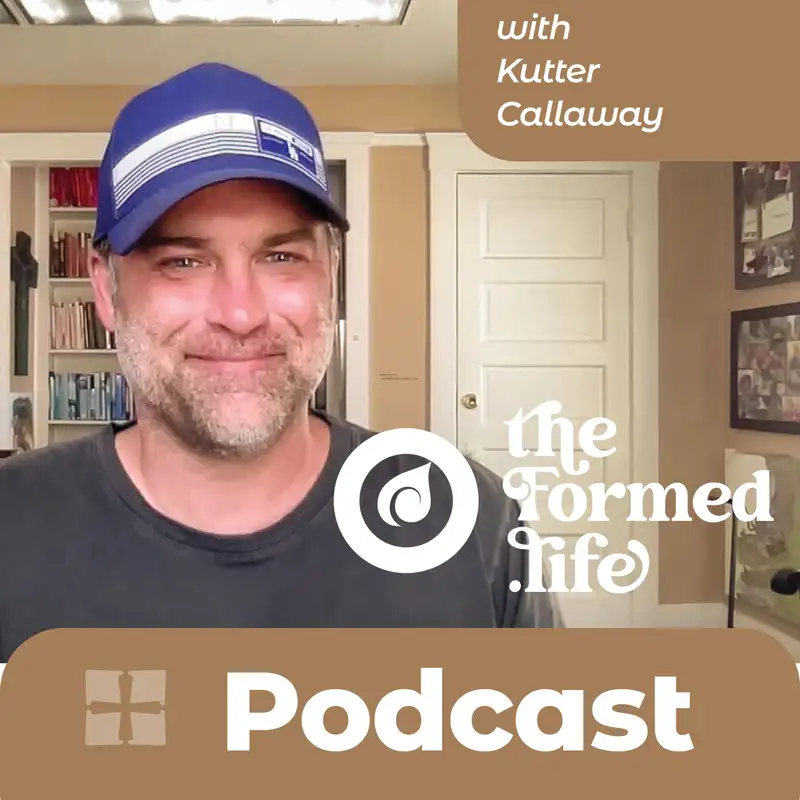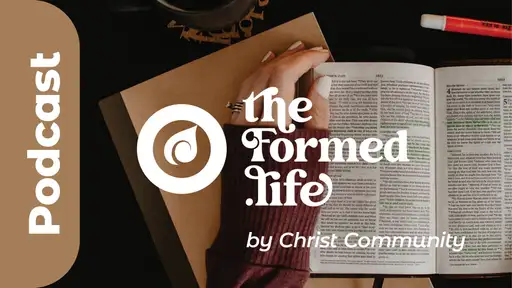POD 038 | Horror and the Christian Faith: Insights from Kutter Callaway
Download MP3What can the horror genre teach us about faith and the human condition? On this episode of theFormed.life, we explore this intriguing question with Kutter Callaway, a professor from Fuller Theological Seminary. Together, we dig into the connections between horror, trauma, and theology, offering fresh perspectives on how these unsettling narratives can deepen our understanding of spiritual and existential realities.
GUEST BIO:
Kutter Callaway serves as associate dean of the Center for Advanced Theological Studies at Fuller Theological Seminary, where he focuses on the intersection of theology and culture, particularly in film and media. He holds two PhDs in theology and psychological science and is the author of several books, including Theology for Psychology and Counseling (2022) and The Aesthetics of Atheism (2019). In addition to his academic roles, he co-chairs the Religion, Film, and Visual Culture group for the American Academy of Religion. He is a seasoned Baptist minister with extensive pastoral experience.
QUOTES:
"The kind of horror of living in that body, is something I would never be able to know in a sort of direct visceral way, so I can hear stories, I can be in conversation. But now I've got this movie that just disturbs me to my bones, and I go, why is that? What's happening in that movie? And, you know, spoiler alert, I don't wanna overly spoil it, but it's essentially, a fundamental dehumanization of another human, a child of God based upon the color of their skin, couched in a horror movie."
- Dr. Kutter Callaway
"Statistically significant amounts of people who watched horror genre had way lower levels of depression, anxiety, whatever, coming out of COVID than those who
- Dr. Kutter Callaway
"One thing that my filmmaker friends will say, is that, in fact, horror is one of the most deeply Christian, of genres because, and actually this is a Scott Derrickson, he's the one that directed "Exorcism of Emily Rose”, because there are very few genres where good and evil are so clearly defined."
- Dr. Kutter Callaway
3 Main Takeaways
- Intersection of Horror and Faith: The discussion explores how horror films can serve as a medium for theological reflection and understanding of trauma and suffering. By analyzing horror tropes and films like "Get Out" and "The Exorcist," we discuss how horror can challenge and expand traditional readings of scripture, especially focusing on themes of fear, terror, and divine abandonment.
- Cultural and Theological Relevance: The conversation highlights the importance of acknowledging and engaging with spiritual realities and supernatural experiences. This is seen as a missional opportunity for religious communities to connect with society's encounters with the unexplained. We also emphasize how horror can help articulate and process existential fears, thereby providing a platform to discuss deeper theological questions.
- Psychological and Social Impact of Horror: The episode touches on the psychological benefits of engaging with horror media, noting that it can help individuals build resilience against anxiety and depression, especially in a post-COVID context. By dealing with fears through horror narratives, people can gain a better understanding of human experiences related to trauma, and it offers a unique lens through which Christians might reconsider their approach to scripture and faith.
RESOURCES:
Be Afraid Podcast - Kutter Callaway & Christianity Today
The Aesthetics of Atheism - Kutter Callaway & Barry Taylor
Get Out - Directed by Jordan Peele
The Witch - Directed by Robert Eggers
Midsommar - Directed by Ari Aster The Exorcist - Directed by William Friedkin
Stranger Things - Created by the Duffer Brothers
Quiet Place - Directed by John Krasinski
Timestamps:
00:00 Exploring horror's relationship with Christianity and theology.
04:16 Exploring horror films' cultural significance and impact.
08:56 Horror uniquely explores good vs. evil themes.
10:29 Christian priest sacrifices to save possessed girl.
13:46 Horror fans less anxious post-COVID, research shows.
18:52 Stranger Things blends physical and supernatural horror.
20:48 Reading Mark's gospel was a revealing experience.
24:44 Explores Jesus's divinity and human perceptions.
28:10 Horror genre revives imagination in scripture reading.
30:24 Society struggles with unexplainable spiritual realities.
35:06 Film highlights racial dehumanization horror, provoking reflection.
38:15 Connecting trauma stories through horror explores the supernatural.
40:15 Discussing defining horror genres in a podcast.
45:18 Christians navigate fear, love, and wisdom balance.
46:42 Fear God rightly; misdirected fears hinder wisdom.
50:30 Resources linked in podcast show notes.
Hashtags
#HorrorGenre #ChristianTheology #CulturalEngagement #SpiritualRealities #ExorcismInContext #TheologicalReflection #FearAndFaith #MarkGospelHorror #TraumaAndHorror #theFormedLifePodcast
Keywords
horror genre, religious figures as skeptics, spiritual realities, missional opportunity, Kutter Callaway, satanic panic, supernatural views, exorcism, global ministry, Fuller Seminary, film Get Out, marginalization, racial trauma, Robert Eggers, Ari Aster, theological reflection, trauma and suffering, Christian faith in horror, The Exorcist, theology and psychology, anthropology of horror, horror market appeal, horror hermeneutic, Gospel of Mark, divine abandonment, Trinitarian discourse, transfiguration, supernatural horror, cultural reflection, trauma in horror, horror vs thriller

